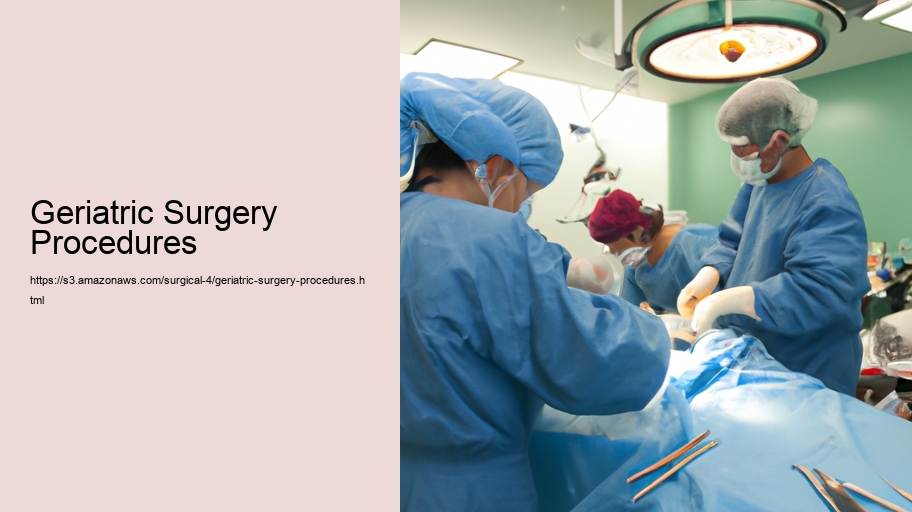Geriatric Surgery Procedures: Navigating the Complexities of Operating on the Elderly
As the global population ages, the field of geriatric surgery has become increasingly significant. Geriatric surgery refers to surgical procedures performed on patients who are typically 65 years old and above. This population group is growing at an unprecedented rate, presenting unique challenges and considerations for healthcare professionals. The physiology of aging affects multiple organ systems, and these changes have profound implications on how surgical care is planned and delivered.
Understanding the Aging Body
The aging process is associated with a gradual decline in the body's physiologic reserve. This means that older patients often have less capacity to cope with the stress of surgery and anesthesia compared to younger individuals. They may have a variety of comorbid conditions, such as hypertension, diabetes, heart disease, or osteoporosis, which can complicate both the surgery and the recovery process. Cognitive impairments like dementia or delirium can also affect an elderly patient's ability to follow post-operative care instructions and may increase their risk of post-surgical complications.
Preoperative Assessment and Planning
Preoperative assessment in geriatric patients is critical and must be more comprehensive than for younger patients. This includes evaluating not just the surgical risk but also the patient's functional status, social support system, cognitive function, and nutritional status. The goal is to create a personalized care plan that addresses both the surgical condition and the patient's overall well-being.
Medical teams often utilize a multidisciplinary approach, involving geriatricians, anesthesiologists, surgeons, nutritionists, and physical therapists to optimize the patient's health before surgery. Prehabilitation, which may include physical exercises, nutritional optimization, and mental health support, is sometimes recommended to enhance the patient's resilience to the upcoming surgical stress.
Surgical Techniques and Approaches
When it comes to the actual surgery, geriatric patients may benefit from less invasive surgical techniques. Procedures like laparoscopy or robotic surgery can lead to shorter hospital stays, less pain, and quicker recoveries. However, the decision must be individualized, taking into account the patient's specific health profile and the nature of the surgical problem.
The Role of Anesthesia
Anesthesia in the elderly requires careful consideration. Older patients have an increased sensitivity to anesthetics, and the risk of postoperative cognitive dysfunction (POCD) is a real concern. Anesthesiologists tailor their techniques to use the lowest effective doses and employ regional anesthesia when possible to minimize systemic effects.
Postoperative Care and Recovery
Recovery from surgery can be more prolonged and complex in geriatric patients. Early mobilization, pain management, and prevention of complications like infections or blood clots are essential parts of postoperative care. Close monitoring for signs of delirium and other cognitive changes is also crucial. Discharge planning should begin even before the surgery takes place, to ensure a smooth transition back home or to another care facility if needed.
Elderly patients often require a more extended period of rehabilitation to regain their strength and independence. Follow-up with the surgical team and other healthcare providers is important to monitor for late complications and to assess the need for further interventions or support.
Ethical Considerations
Geriatric surgery also raises ethical questions about the goals of care and the patient's quality of life. Decisions about proceeding with surgery in elderly patients must balance the potential benefits with the risks and the patient's own preferences and values. End-of-life concerns and advanced directives should be discussed openly, respecting the autonomy and dignity of the aging patient.
In conclusion, geriatric surgery is a complex and delicate field that requires a careful and compassionate approach. As our population continues to age, it will be increasingly important for healthcare systems to adapt and provide the specialized care that elderly patients need. With the right planning and support, surgery can significantly improve the quality of life for many older adults, allowing them to enjoy their later years with better health and independence.
